Last Updated: 1 year ago
Are you looking for the best mouser cat breeds to take care of your rodent problem?
While most outdoor and indoor cats have superb hunting instincts, not all cat breeds make good mousers.
Fortunately, we’re coming to your rescue with the best mouser cat breeds that will gladly bring you dead critters.
Let’s take a look!
10 Best Mouser Cat Breeds
In the beginning, people allowed cats to hang around granaries, fields, ships, and houses because they kept the rat population under control.
Some nations, such as the Egyptians, even worshiped cats and mummified them.
Nowadays, cats are purring companions instead of pest control, but they still haven’t lost their hunting instincts.
Look at how your cat goes after the red dot or a moving toy, and you’ll see I’m right.
However, not all cats catch and eat mice because they lack the desire or the education to do so.
But we’ve got seven of the best hunting cat breeds that won’t leave a mouse to roam in their domain.
#1 Maine Coon
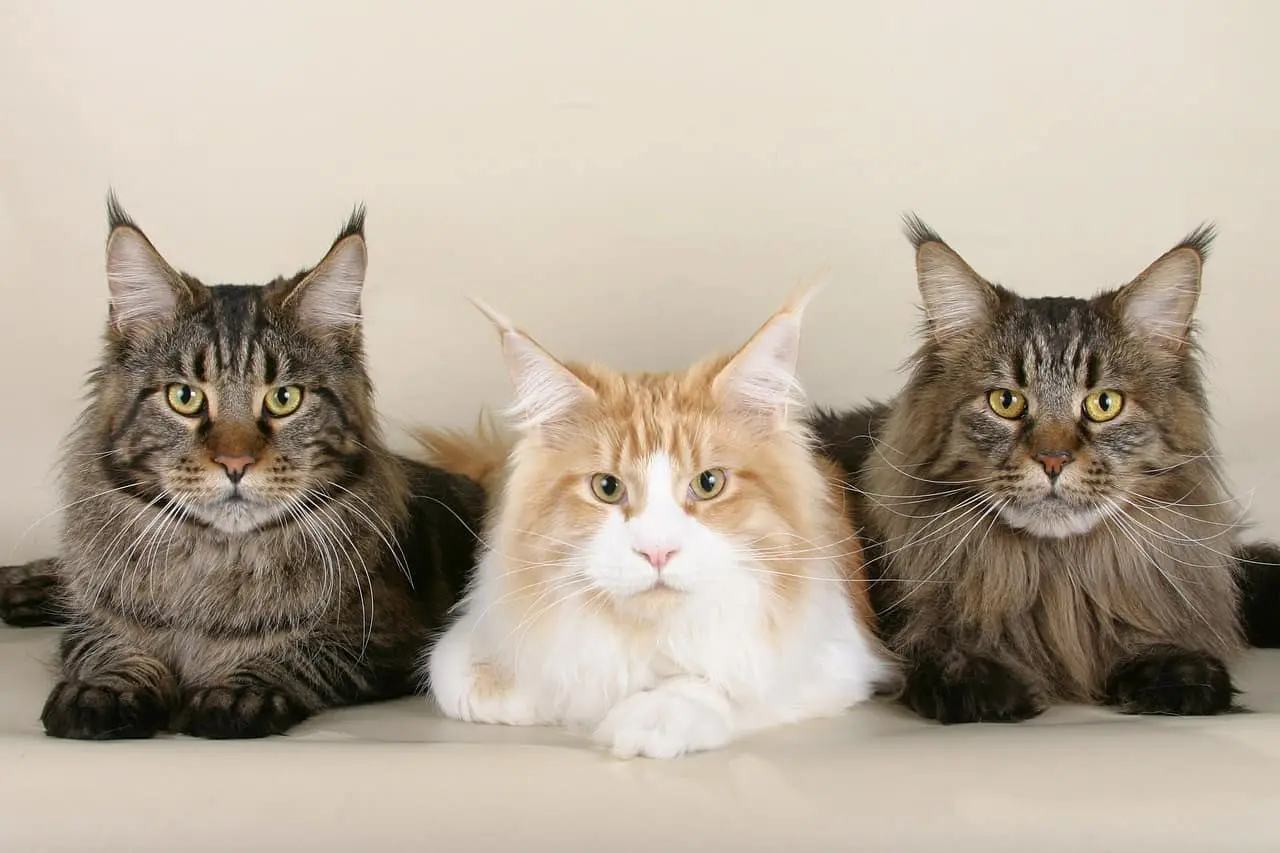
Maine Coons are among the largest domestic cats with their bushy tails, majestic coats, silky fur, and big ears.
Since these adorable fluffy cats weigh around 18 pounds, you’d think that they’d be poor mousers, but they’re actually one of the best hunting cat breeds of all!
Despite its giant size, the Maine Coon is an excellent mouser with a long history.
They were popular farm cats as far back as the 19th century and were loyal companions on sailing ships.
It’s not hard to see why people fell in love with their gentle and affectionate nature and kept them as pets.
Besides their majestic appearance, Maine Coon cats are smart, cunning, and resourceful when hunting.
They love to chase stuffed toys and will gladly go after any rodents you’ve got.
Moreover, most mice will run away in terror when they see an 18-pound cat and won’t return to your house or yard again.
#2 Siberian Cat
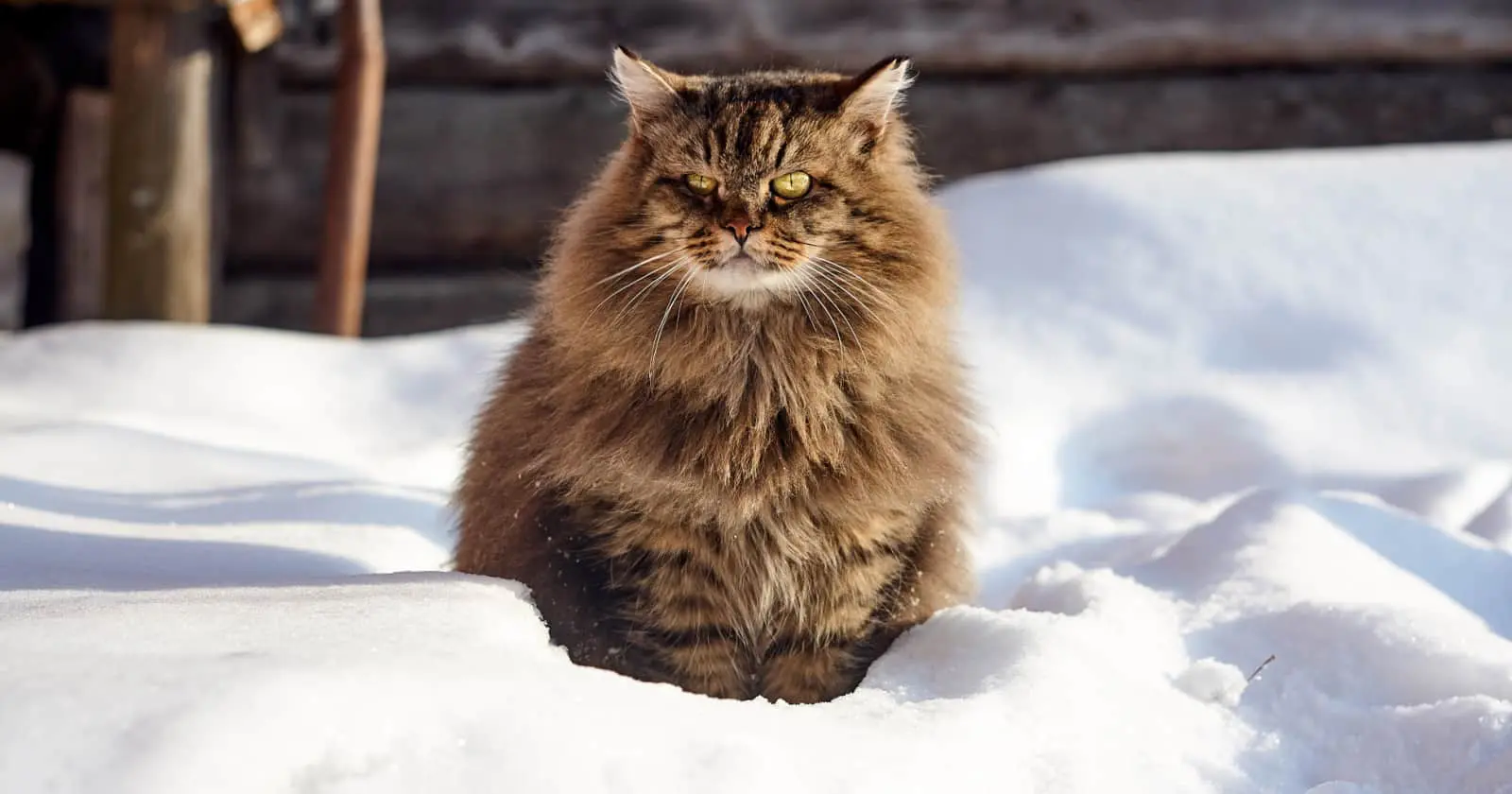
Another domestic long-haired cat that earns its place among the best cat breeds for catching mice is the magnificent Siberian cat.
Similar in appearance and size to the Maine Coon, the Siberian comes from Russia and the Taiga’s colder climates.
You’ll often find them mentioned in Russian fairy tales as brave protectors and loyal companions.
While the Siberian cat is an excellent companion, they’re famous for their hunting skills.
In the past, they used to keep stores, farms, grainers, and houses mouse-free.
Nowadays, the Siberian hasn’t lost their hunting skills, evident in how much these cats love to chase laser dots and stuffed toys.
So, if you’ve got mice, they don’t stand a chance with a Siberian on the prowl.
#3 American Shorthair
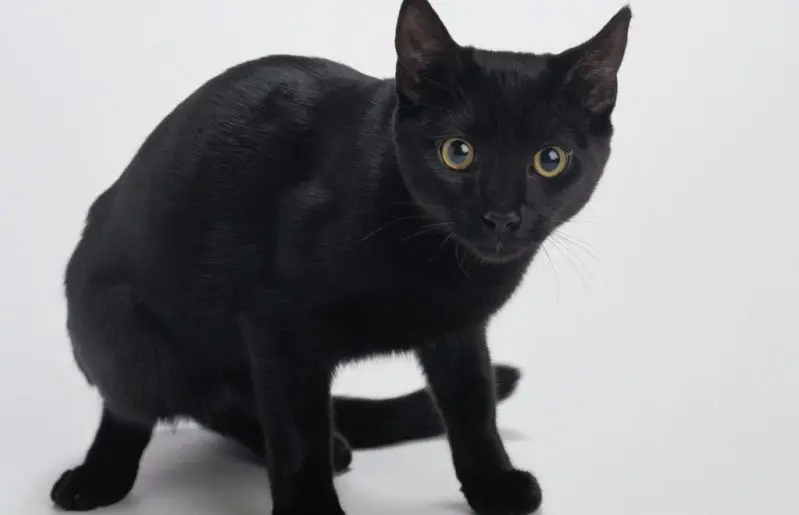
People often have the wrong impression about the American Shorthair and regard these adorable cats as a dumb breed.
While the American Shorthair isn’t overly energetic and playful, it’s got a long history as one of the best cat breeds for catching mice.
As the story goes, the ancestors of the American Shorthairs likely came to America with the Mayflower in 1620.
These seafaring cats were responsible for keeping the passengers safe from rodents, and their ratting abilities were highly valued at sea.
On land, these shorthair tabby cats became favorites of farmers and shopkeepers due to their hardy bodies, placid temperament, and hunting instincts.
The American Shorthair is perfect for people who want a mouser breed but don’t want a clingy cat. Moreover, their coat is easy to groom and doesn’t need much care.
#4 Domestic Shorthair
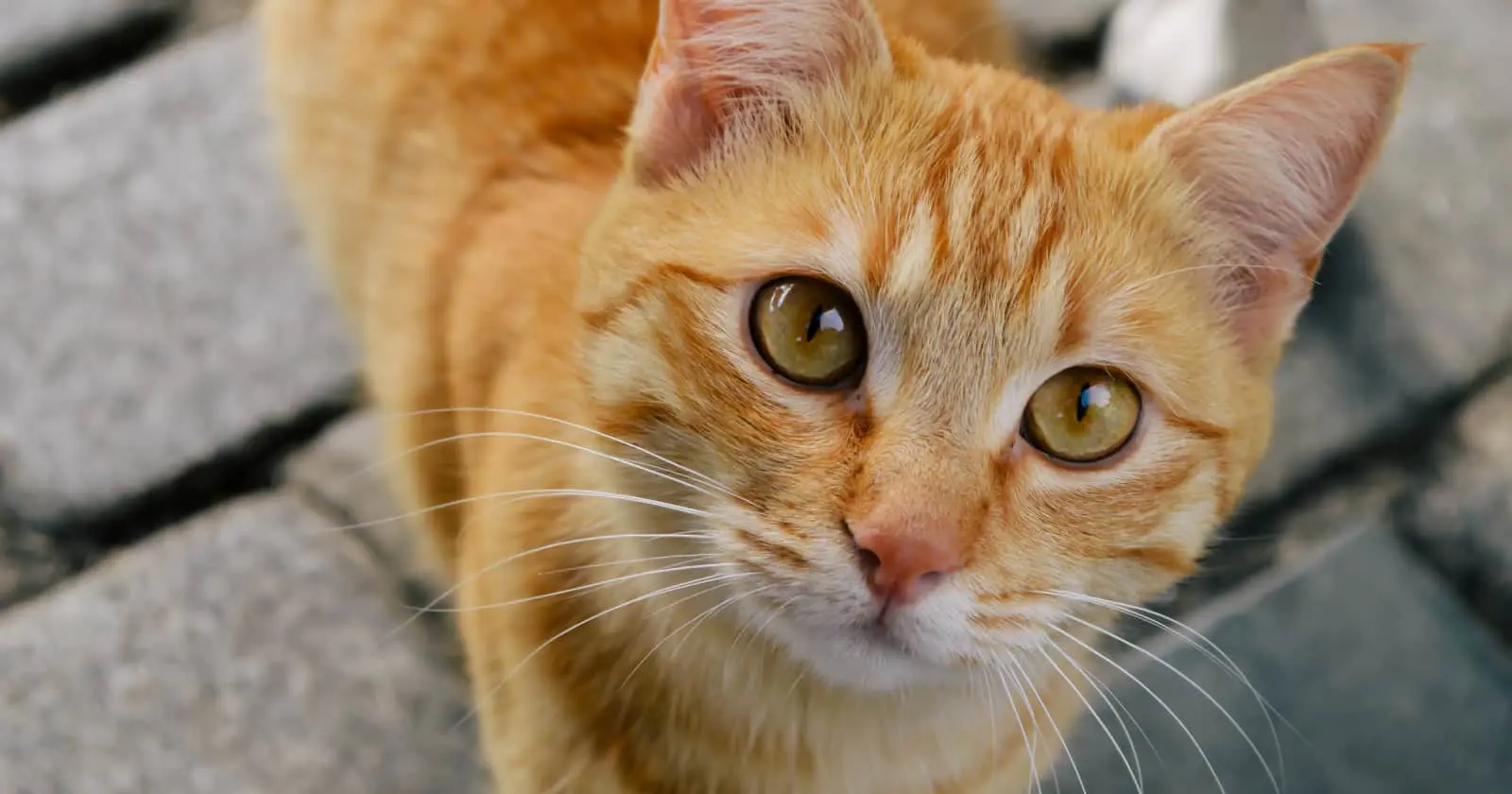
Domestic Shorthair is a name we use to describe those amazing felines that don’t have a pedigree and don’t belong to any particular cat breed.
In general, Domestic Shorthair cats come in a variety of sizes, colors, and temperaments.
People consider them a working breed due to their solid bodies, superb hunting skills, and endurance. They’re also street-smart, adventurous, and easy-going.
Moreover, domestic cat breeds are among the healthiest cat breeds due to their mixed parentage and hybrid vigor.
They’re also less likely to be stolen or “rescued” from your yard.
If you want a mouser cat breed to keep your house rodent-free, the Domestic Shorthair will do a quick job of it and leave the dead prey on your front porch.
They also get along well with children and make wonderful companions.
#5 Siamese
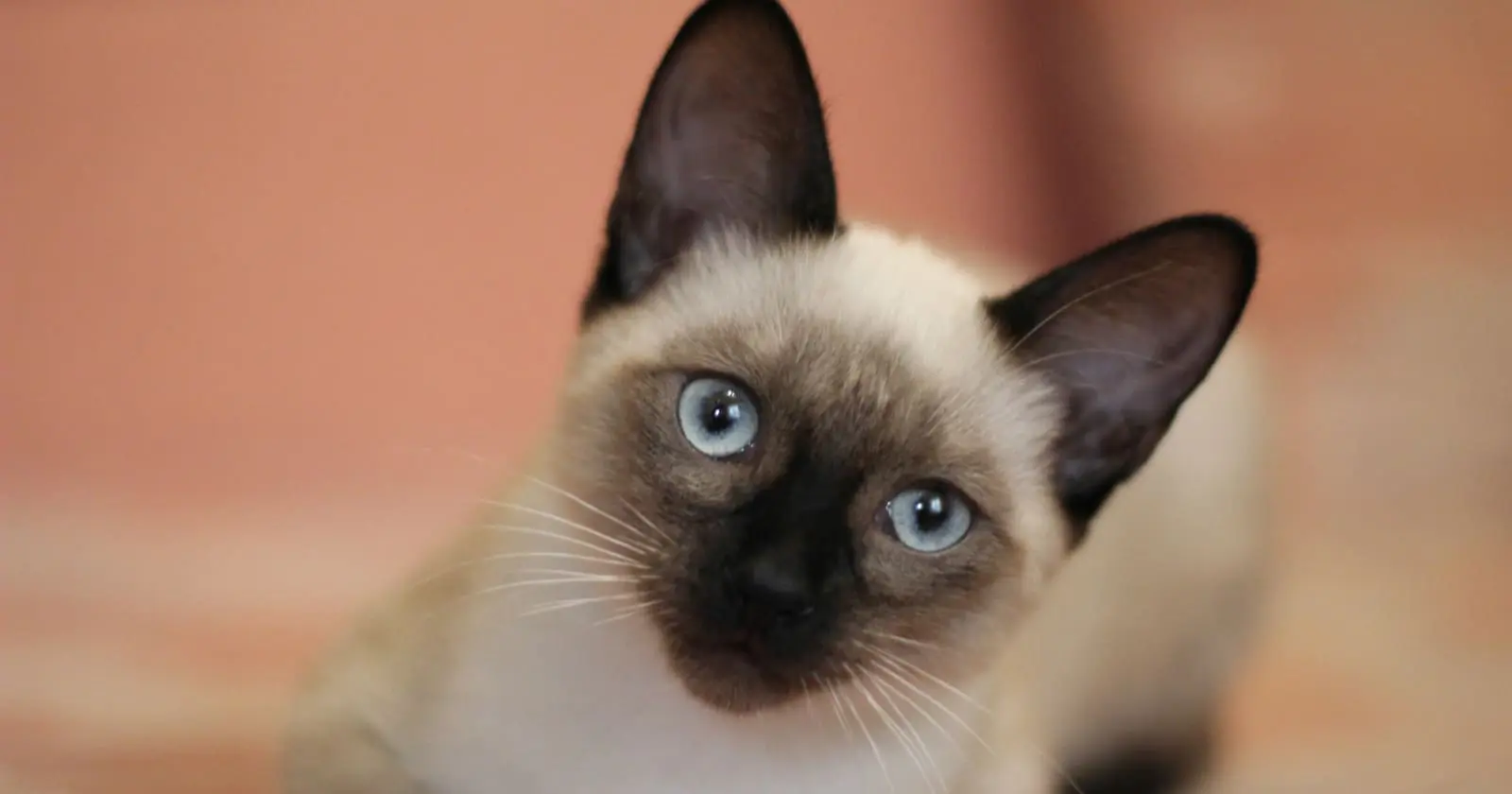
Siamese is one of the most popular breeds and easy to recognize with their color-pointed bodies.
While Siamese cats have an air of dignity and seem too important to deal with simple matters such as mice, they are among the best hunting cat breeds.
It shouldn’t be such a surprise because Siamese are among the smartest cat breeds and use their brains to corner their prey.
They’re also agile and athletic, and they love to pounce on and chase toys around the house.
However, Siamese cats love to “talk” and have an opinion about everything.
If you value a quiet home, a Siamese might not be the best mouser cat breed for you.
Moreover, some consider Siamese to be an aggressive cat because they’re highly energetic and can get carried away during the game.
#6 Burmese
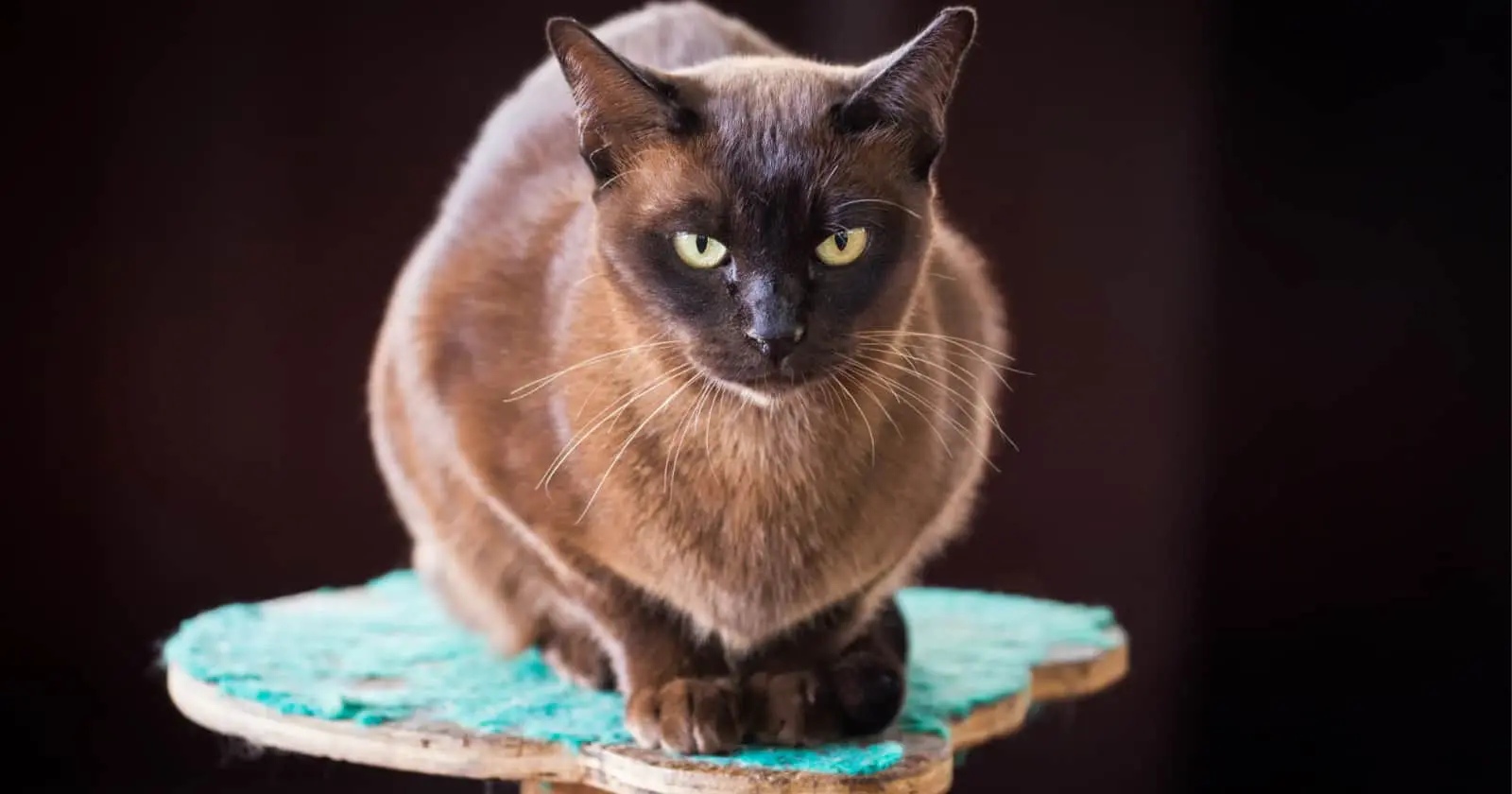
Do you know that owners call the Burmese a “brick wrapped in silk”?
That’s because Burmese is a hardy cat with silky fur and an affectionate temperament.
They’re also intelligent, agile, and athletic, and these qualities make them excellent mousers.
Since Burmese is related to Siamese, you shouldn’t be surprised by their chattiness, playfulness, or clinginess.
They thrive on human attention and get along well with dogs and other cats.
Burmese cats, one of the cat breeds beginning with B, are also curious, adventurous, and love to explore.
They won’t leave a spot unchecked in your house, and they will eliminate any rodents they find.
These brown cats also like to “kill” their toys and can be bribed to learn tricks with plenty of delicious food. However, the Burmese want to be involved in everything you do.
But if you don’t mind a complete loss of privacy, they will keep your house mouse-free with pleasure.
#7 Chartreux
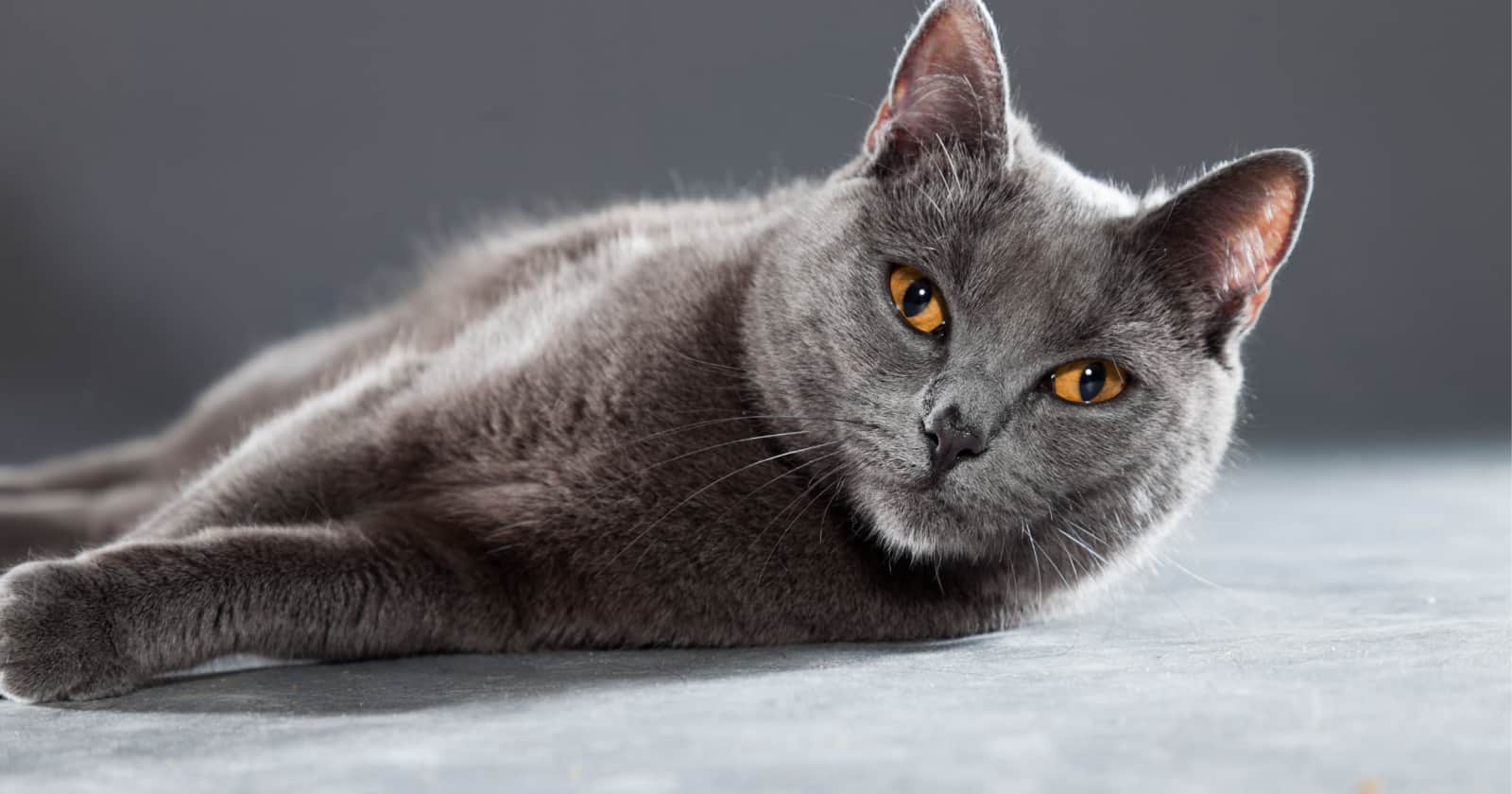
With deep orange eyes, a medium-short double coat, and a weight of 7–16 pounds, the Chartreux is a sight to behold and worship.
This rare cat breed comes from France, and its history goes as far back as the 18th century.
They were commonly found in stables, shops, and houses where they took care of rodents and earned the name “death to rats.”
Besides their extraordinary hunting abilities, the Chartreux is a quiet cat that appreciates attention without being too demanding.
This grey cat with blue eyes also makes excellent travel cats due to their adaptability and sunny nature.
#8 American Wirehair
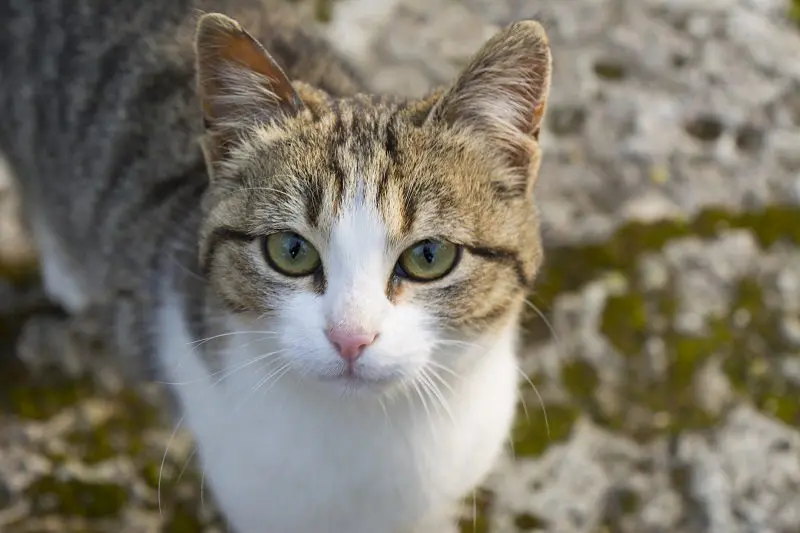
Experts believe that the American Wirehair originates from New York.
This original barn cat had a strange coat mutation that converted its fur from what would be a soft coat, like most other felines, to a more wiry texture, similar to the wool of a sheep.
Therefore, this breed began to be known as the American Wirehair.
Many farmers adore this cat breed, especially in America. They’re excellent rodent hunters that thrive outdoors because of the odd coat texture that keeps them warm and dry.
You still have to ensure they have a warm place to rest outside, as they can become cold after prolonged exposure.
The American Wirehair has a thick neck, a broad chest, and a strong, muscular body. These medium-sized cats are heavy and do a great job of capturing small and big rats alike.
#9 Bengals
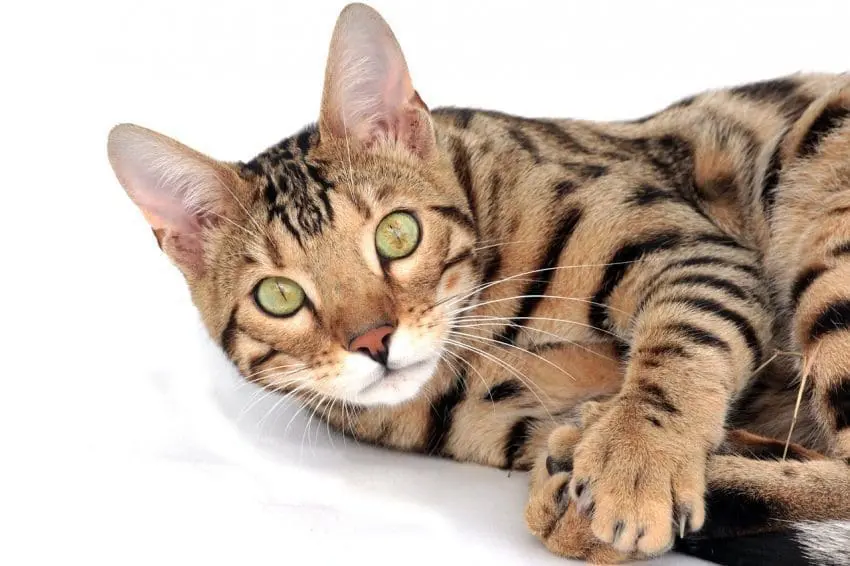
Bengals are domesticated cats that have numerous wild traits. In other words, your cat will be able to catch more than one rat per day.
Moreover, there’s a high chance that your furry friend will catch them, at least until it becomes bored or full—whichever comes first.
You must remember that the urge for this particular cat breed to catch and kill is not relegated to mice; it includes other small animals such as squirrels, bats, chipmunks, and moles.
If you are considering getting a Bengal, be prepared to possibly find small deceased creatures lying around the house.
The best way to curb your Bengal’s instinct to hunt is to play with them. Begin by simulating a hunt with the use of a strong feather wand.
If you slowly drag and wiggle the wand across the floor, you’ll stimulate your cat’s hunting instincts. This activity should be enough to keep them out of the yard for a while!
#10 Balinese Cat
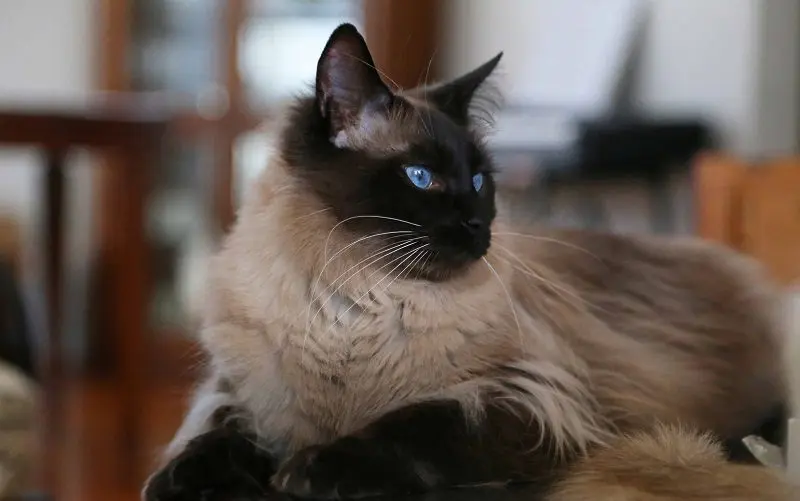
Balinese are amiable and social cats. They love the company of people and other cats as well.
However, there’s a good chance that they’ll become attached to one person instead of many. Owners usually appreciate the extra affection that they get from their furry companion.
These cats are found in the U.S., were originally imported from Thailand, and are essentially identical to the purebred long-haired Siamese cat.
It is an active breed of cat and, therefore, doesn’t do well in smaller areas. They need ample space to run, climb, and jump.
If you don’t have a designated climbing area for this cat, you can expect cabinets, shelves, and other appliances to be a substitute.
They are very prone to using these skills to catch mice. Due to their active nature, it’s no wonder why they are one of the best cat breeds for catching mice.
Why Are Some Cats Better Mousers Than Others?
You might think that breed is the only thing that matters when you’re choosing a mouser cat.
However, no cat is born with the knowledge of how to hunt mice. It’s something they learn from their mother and from those who do make the best mousers.
Usually, the lessons start when the kittens are around two months old.
- The mother brings a dead mouse and eats it in front of the kittens. It shows the little ones that mice are suitable food.
- In the next step, mom allows the kittens to play with the dead mouse. The kittens will pounce and fling the mouse around for hours, honing their hunting skills.
- The mother cat will then bring half-dead mice so that the kittens can finish them off and learn how to kill.
- When the kittens grow in confidence, the mother will get them a healthy mouse and let them try to kill it. Usually, the mice escape the first few lessons since the kittens get far too excited, but not for long.
- Finally, the mother will take her kittens to a suitable hunting spot.
Since mother cats teach their kittens how to hunt, they’re better at it than tomcats.
Young males usually hunt, but once they mature, they’re thinking more about reproducing than catching rodents.
Keep that in mind when you’re choosing a mouser cat.
What Kind of Cat Is a Good Mouser?
You can’t always know if kittens have been taught to hunt by their mother.
Then how can you tell what kind of cat is a good mouser? Observe the kittens for hunting behavior.
Kittens that show a strong interest in a toy and relentlessly chase, pounce, and bite it are more likely to be effective in controlling the mouse population.
On the other hand, kittens that don’t show much interest in toys and prefer to nap on the couch are better suited as friendly companions.
Usually, farm and barn cats are the best for rodent control because they’ve been around pests and are used to hunting.
Your local animal shelter might also have cats that would make excellent mousers.
How Do I Make My Cat a Mouser?
The easiest way to make a skilled hunter out of your kitten is to play with them as much as possible.
Engage the little one with active or mobile toys to sharpen their instincts and reward their playfulness every chance you’ve got.
If your cat brings you a mouse, you should praise them for a job well done and give them tasty food as a reward.
Petting and extra attention are also excellent motivations for some breeds to learn how to hunt.
However, keep in mind that not all cats make wonderful mousers.
Social breeds are often more interested in being your friend than taking care of your mice’s problems.
How to Take Care of a Mousing Cat?
If you’ve got a hunter cat, you might be wondering how to take care of them.
It’s nothing more different than caring for any other breed of cat.
Still, here are a few tips to make sure that your mousing kittens have the life of luxury they deserve:
- Deworm your cat regularly. Consuming raw prey carries the risk of internal parasites, which can make your cat very sick.
- Vaccinate your cat to protect them from contagious diseases.
- Feed your cat a hearty meal after they come home from a successful hunt.
- In the colder months, make sure that your cat has adequate shelter if he is used to living outside.
- In the warmer months, an outdoor cat should have plenty of water and a shady place to nap.
Closing Thoughts
Most mice run away the moment they smell a cat. Interestingly, researchers have discovered that the mere whiff of cat urine or saliva is enough to make mice tremble in fear.
Some cats kill for the thrill of the hunt, while others enjoy the taste of raw meat. It depends on the cat and their preferences.
While all cats have the instinct to kill, some are more interested in the game. They prefer to bring live prey into the house to show off and are likely to let the mouse or rat loose inside.
Mice might have been part of a cat’s diet for thousands of years, but they aren’t as safe as you think. Rats can be poisoned or carry parasites or diseases that can make your cat sick.
You should keep that in mind if you allow your cat to catch mice or want to encourage hunting behavior.
Does your cat catch mice, or do they get along with your hamster? Tell us your story in the comment section.
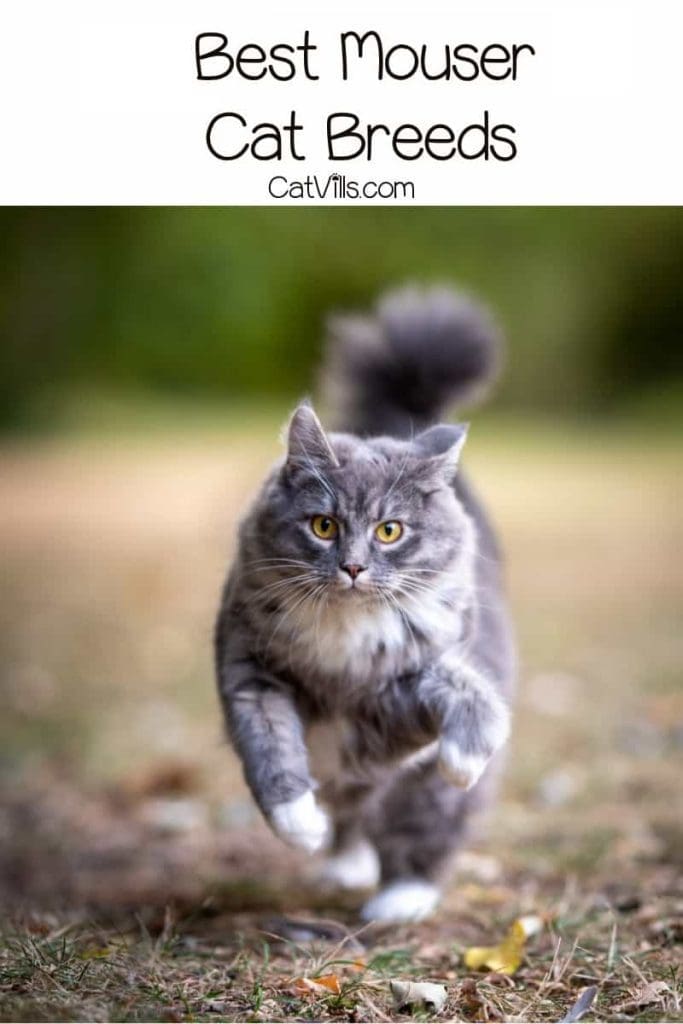

Wow, I had no idea that so many breeds were so efficient at hunting mice. Definitely may have to reconsider getting a cat now because in New Orleans we have tons of mice and roaches. Perhaps, we may have to invest in the Chartreux since we have French roots here.
They are all too cute even though I’m more of a dog person lol. Main Coons have such lovely fur.
Weird I wouldn’t think this would be down to breed but necessity and drive. But I guess it’s like dogs. Terriers are great rat dogs, labradors not so much!
I honestly didn’t realise that some cats were better at catching mice than others! The Siberian and Maine Coon make sense though, considering how big they are. I had a friend with a Maine Coon and it was like she had a pet tiger honestly; it was HUGE! Super friendly though – which is good, otherwise it would have been terrifying ?
OMG, I can’t believe I’ve read this after my friend bought a cat to get rid of the mice in her home. I need to check what she got. Hopefully, it’s one of the ones you mentioned. Seriously, what are the odds!!!
I really don’t know if I could cope with a cat bringing me little mousie offerings! It’s bad enough having to pull random bits of ‘street food’ from my dog’s mouth without contemplating a mouse!
Thats a informative and helpful post for all the cat onwers. I had no clue about it.
I have a domestic shorthair and I completely agree with you. They are amazing hunters and definitely street smart.
I don’t guess you can never tell, those some are more inclined than others. Everything listed above makes plenty of sense, however. I recently got an male American shorthair kitten for my full grown female Norwegian Forest cat, as she appeared to be depressed after I’d given away her litter. She needed company.
And the Norwegian didnbehin lessons with the little on how to mouse, but before long the little bugger had her out matched! Even half grown, I saw him pull down a baby bird and have it tucked under one arm… not even sure what to do with it. Then the mother came down to attack, and he got hold of her too! He had a bird under both arms! And both of them started pecking his head apart! Having no choice he let them go and took the lesson, but that little guy is a terror. i got home the other day and there he is in silhouette on the roofline, stalking squirrels. He’s also got the LONGEST set of claws I’ve ever seen on a cat. like sabers. thank god he’s a sweetheart. I guess some cats just love it, though.
The Norwegian (kin to a Main Coon) could give a damn.